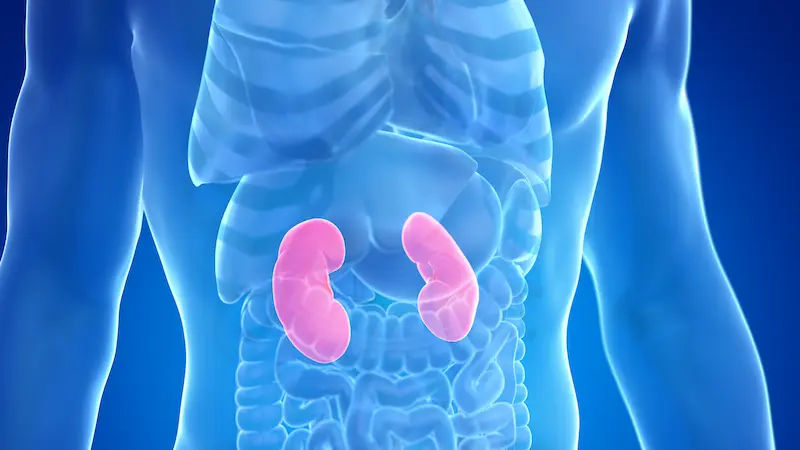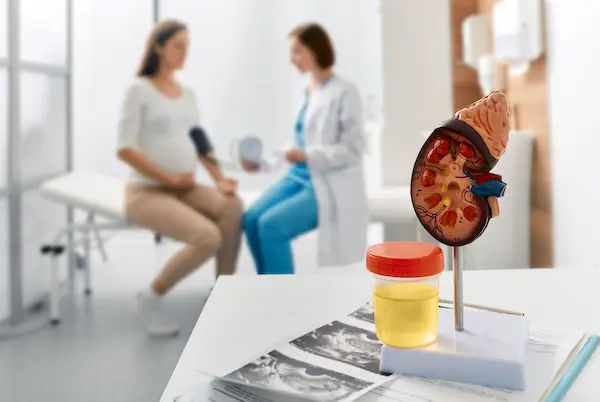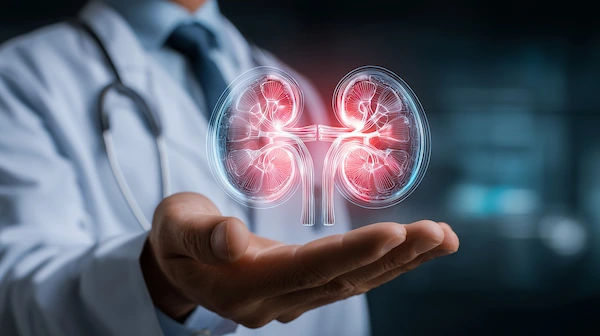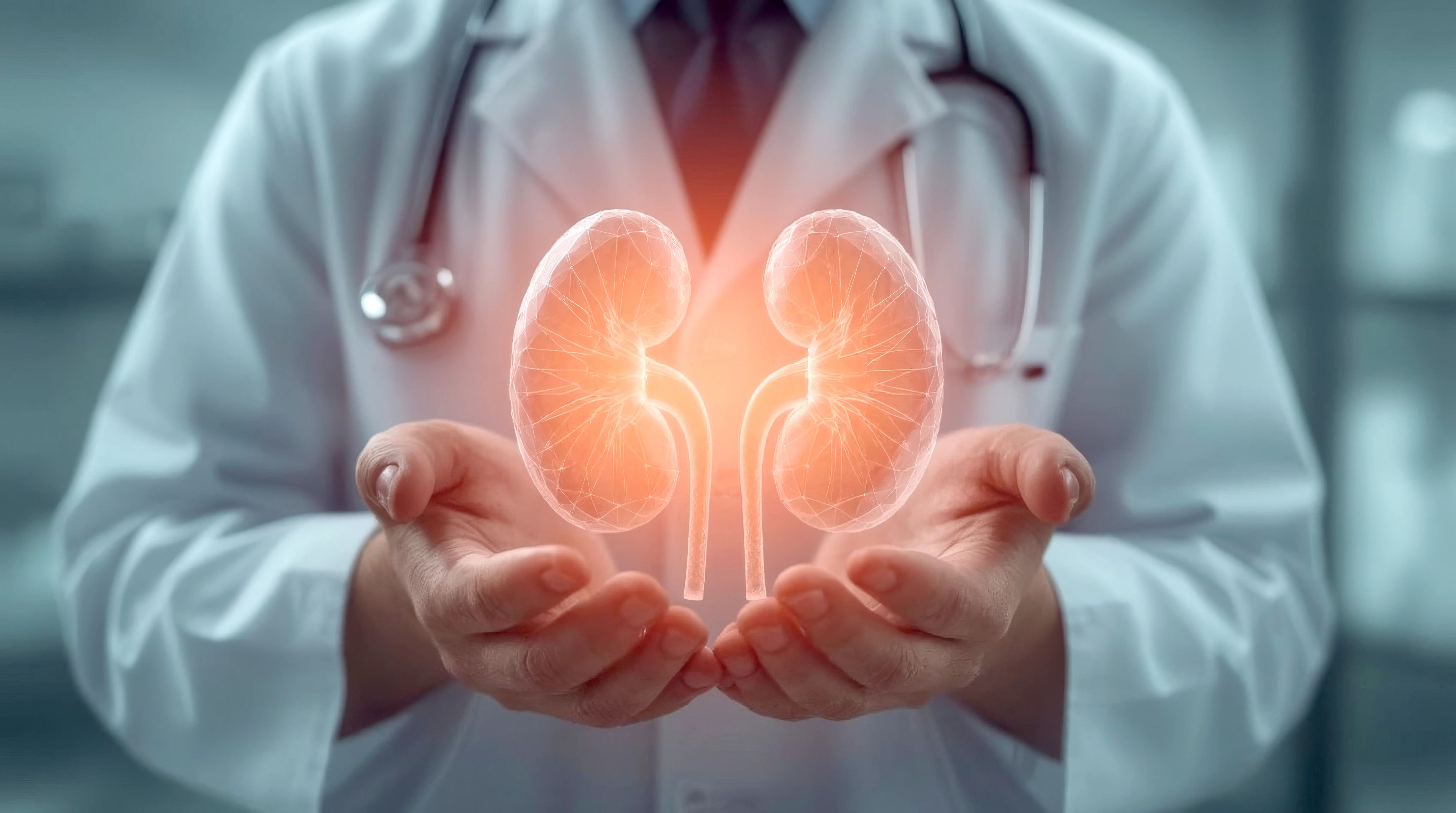Home Remedies to Reduce Uric Acid Naturally
Discover safe, science-backed uric acid remedies and gout home treatment tips: diet, hydration, weight loss, and what to avoid.

Written by Dr. Dhankecha Mayank Dineshbhai
Reviewed by Dr. Rohinipriyanka Pondugula MBBS
Last updated on 13th Jan, 2026

Introduction: Why reducing uric acid matters
High uric acid levels can gradually build up in the bloodstream and form sharp urate crystals in the joints. These crystals cause gout—one of the most painful and disabling forms of arthritis. A flare can strike suddenly, often at night, and can make even a light bedsheet feel unbearable. While medications play a central role in moderate to severe gout, simple lifestyle steps can help lower uric acid, reduce flare frequency, and support long-term joint health.
This guide explains uric acid in simple terms, outlines science-backed home remedies, and provides practical tips for managing gout flares at home. These steps are designed to complement, not replace, professional medical guidance. With steady habits and the right treatment plan, most people can regain comfort and prevent future attacks.
Consult a Top General Practitioner for Personalised Advice
Uric acid and gout in simple terms
Uric acid forms naturally when the body breaks down purines, substances found in certain foods and also produced within the body. Normally, uric acid dissolves in the blood and is filtered out through the kidneys. If too much uric acid is produced, or the kidneys are unable to remove enough, levels rise—known as hyperuricaemia. Over time, excess uric acid can crystallise inside joints, triggering inflammation and the classic symptoms of a gout flare.
Typical flare features include:
- Suddenly, intense joint pain
- Redness and warmth
- Severe tenderness
- Rapid swelling
- Increased sensitivity to the slightest touch
Although the big toe is the most common site, gout can affect the ankles, knees, wrists, elbows, and fingers.
Common risk factors
Common risk factors:
- Family history or genetic predisposition
- Reduced kidney function or kidney disease
- Overweight or obesity
- Diets high in purine-rich meats and seafood
- Sugary drinks or foods high in fructose
- Alcohol intake, particularly beer
- Certain medications, such as some diuretics, low-dose aspirin, niacin, and immunosuppressant medicines
Important: If you suspect gout, have frequent flares, or experience severe swelling with fever, seek medical attention. Lifestyle measures help, but they do not replace medical care where required.
Science-backed uric acid remedies you can start today
These strategies are safe for most people and align with current, well-established medical understanding. They can be started at home while you follow your prescribed treatment.
1) Drink more water
- Sip water throughout the day rather than drinking large volumes at once.
- Hydration helps your kidneys flush uric acid more efficiently.
- Carry a reusable bottle as a reminder and set phone alerts if needed.
- If you have kidney, liver, or heart concerns, ask your clinician about your ideal fluid intake.
2) Choose low-purine proteins
High-purine foods break down into uric acid, so reducing them can help lower levels.
Limit these foods
- Organ meats: liver, kidney
- Game meats
- Seafood such as anchovies, sardines, mussels, scallops, trout, and tuna
Choose these instead
- Skinless poultry and small amounts of lean red meat (occasional)
Eggs, tofu, beans, and lentils
- Low-fat or fat-free dairy products such as milk and yoghurt
Helpful note
- Purine-rich vegetables (e.g., spinach, mushrooms, cauliflower) generally do not increase gout risk the way certain meats do, so they can usually be eaten freely.
3) Cut back on alcohol — especially beer
- Beer contains compounds that raise uric acid and is strongly linked with gout flares.
- Spirits can also increase risk, though wine appears less problematic for some individuals.
- If you’re experiencing frequent flares, consider avoiding alcohol until your uric acid levels are under control.
4) Reduce sugary drinks and high-fructose corn syrup
- Sugary drinks such as fizzy drinks, energy drinks, and sweetened fruit beverages increase uric acid production.
- Replace them with water, sparkling water with lemon or lime, unsweetened tea, or plain coffee.
5) Eat more plants and low-fat dairy
A plant-rich diet supports overall health and may help manage uric acid.
Helpful additions
- Vegetables, fruits, and whole grains such as oats, brown rice, and whole-wheat pasta
- Low-fat dairy products, which may reduce gout risk
- Vitamin C-rich foods such as citrus fruits, berries, peppers, and broccoli
6) Consider cherries (as a food, not a cure)
- Cherries and cherry products may gently lower flare frequency for some people.
- Choose whole cherries or unsweetened cherry concentrate.
- They are not a replacement for prescribed medications.
7) Lose weight gently if you are overweight
- A 5–10% reduction in body weight can significantly help lower uric acid.
- Avoid crash diets and fasting, as rapid weight loss can increase uric acid temporarily.
- Focus on smaller portions, balanced meals, and gentle movement.
8) Think about vitamin C — food first
- Vitamin C from foods may slightly reduce uric acid levels.
- Good sources include oranges, strawberries, kiwi, peppers, and tomatoes.
- If considering supplements (commonly 500 mg/day), speak to your clinician first, especially if you’ve had kidney stones.
9) Coffee can be fine for many people
- Studies suggest coffee drinkers may have a lower risk of gout.
- If you tolerate coffee and your doctor approves, you can include it in moderation.
- Avoid sugary or high-calorie coffee drinks.
10) Stay active with joint-friendly exercises
- Gentle movement supports healthy weight and overall well-being.
- Choose low-impact options such as walking, cycling, swimming, or water aerobics.
- During flares, rest the affected joint and resume activity cautiously as pain improves.
Gout home treatment during a flare
When a flare begins, taking action quickly can shorten its duration and reduce discomfort.
Helpful steps
- Rest and protect the joint: Avoid pressure and reduce weight-bearing as much as possible.
- Ice: Apply ice wrapped in a thin cloth for 15–20 minutes, repeating several times daily.
- Elevate: If the flare is in your foot or ankle, raise it above heart level when resting.
- Hydrate: Continue consistent fluid intake.
- Pain relief: Over-the-counter NSAIDs such as ibuprofen or naproxen can help if safe for you.
- Always follow the label and check with your clinician if unsure.
- Avoid aspirin: It can alter uric acid levels.
- Use prescribed flare medicines early: If you have colchicine or other prescribed medications, take them exactly as directed at the first sign of symptoms.
When to seek urgent care?
Seek urgent care if:
- Severe pain with fever, chills, or a very hot, red joint (possible infection)
- New, intense swelling after an injury
- Symptoms that worsen despite home treatment
- Inability to bear weight or move the joint
What to limit or avoid
Avoid or limit the following things:
- Alcohol (especially beer): Known to raise uric acid and trigger flares.
- Sugary drinks and desserts: High fructose increases uric acid.
- High-purine meats and seafood: Organ meats, anchovies, sardines, mussels, scallops, trout, tuna.
- High-dose niacin: Can increase uric acid; check supplement labels.
- Dehydration: Even slight dehydration raises uric acid, so maintain regular fluids.
- Unproven quick fixes: Baking soda drinks, apple cider vinegar shots, alkaline water, or “detox cleanses” lack reliable evidence and may be unsafe for some people.
Partnering with your doctor for long-term control
Lifestyle strategies are valuable, but many people require medications for reliable uric acid control. For frequent flares, tophi (visible urate deposits), or gout-related kidney stones, clinicians often prescribe long-term urate-lowering medicines such as allopurinol or febuxostat.
A strong long-term plan typically includes:
- Regular blood tests to monitor uric acid
- Medicines to prevent and treat flares
- Food and lifestyle habits that complement medical treatment
- Ongoing review of weight, kidney health, and cardiovascular risk factors
Working closely with your healthcare provider is the most effective way to protect joint health and prevent future flares.
A simple daily checklist
- Drink water regularly; carry a bottle with you.
- Build meals around plants, whole grains, and low-fat dairy.
- Choose lean or plant-based proteins; limit red meat and seafood.
- Avoid sugary drinks; limit alcohol.
- Move gently each day and aim for gradual weight management.
- Keep medicines, ice packs, and basic flare supplies easily accessible.
Final Word
Uric acid management works best when lifestyle habits and medical guidance come together. Hydration, balanced meals, weight management, and smart protein choices can all help reduce flare frequency and support long-term joint comfort. Consistency is key—small steps practised daily have a powerful cumulative effect. By working closely with your clinician, preparing for flares, and following a stable routine, you can protect your joints, reduce pain, and maintain an active, comfortable life.
Consult a Top General Practitioner for Personalised Advice
Consult a Top General Practitioner for Personalised Advice

Dr. Debajyoti Goswami
Obstetrician and Gynaecologist
10 Years • MBBS,D.G.O(DNB),Adv. Infertility Tech.(AIIMS),Fellowship in Diabetes(U.K),Comprehensive Abortion Care(Govt. Of W.B), Certificate in Clinical Embryology(AIIMS, BHUBANESWAR)
Bankura
D.G Clinic, Bankura
(25+ Patients)

Dr. Ashita Kuruvilla
General Practitioner
7 Years • MBBS
Kolkata
KVC CLINIC, Kolkata

Dr. Rupam Chowdhury
Orthopaedician
10 Years • MBBS, DNB (Ortho.)
Kolkata
MCR SUPER SPECIALITY POLY CLINIC & PATHOLOGY, Kolkata

Dr. E Prabhakar Sastry
General Physician/ Internal Medicine Specialist
40 Years • MD(Internal Medicine)
Manikonda Jagir
Apollo Clinic, Manikonda, Manikonda Jagir
(175+ Patients)

Dr. Abhirup Chakrabarti
General Practitioner
10 Years • MBBS
Chennai
Dr Abhirup Chakrabarti, Chennai
Consult a Top General Practitioner for Personalised Advice

Dr. Debajyoti Goswami
Obstetrician and Gynaecologist
10 Years • MBBS,D.G.O(DNB),Adv. Infertility Tech.(AIIMS),Fellowship in Diabetes(U.K),Comprehensive Abortion Care(Govt. Of W.B), Certificate in Clinical Embryology(AIIMS, BHUBANESWAR)
Bankura
D.G Clinic, Bankura
(25+ Patients)

Dr. Ashita Kuruvilla
General Practitioner
7 Years • MBBS
Kolkata
KVC CLINIC, Kolkata

Dr. Rupam Chowdhury
Orthopaedician
10 Years • MBBS, DNB (Ortho.)
Kolkata
MCR SUPER SPECIALITY POLY CLINIC & PATHOLOGY, Kolkata

Dr. E Prabhakar Sastry
General Physician/ Internal Medicine Specialist
40 Years • MD(Internal Medicine)
Manikonda Jagir
Apollo Clinic, Manikonda, Manikonda Jagir
(175+ Patients)

Dr. Abhirup Chakrabarti
General Practitioner
10 Years • MBBS
Chennai
Dr Abhirup Chakrabarti, Chennai
More articles from Kidney Disease
Frequently Asked Questions
What is a normal uric acid level?
Typical ranges vary by laboratory, but are often around 3.4–7.0 mg/dL for adult men and 2.4–6.0 mg/dL for adult women. People with gout are often advised to keep levels below 6.0 mg/dL However, discuss your ideal range with your clinician.
Are purine-rich vegetables off-limits?
No. Purines in vegetables do not raise gout risk the way certain meats and seafood do. Most people with gout can enjoy a wide variety of plant foods.
Can lemon water lower uric acid?
- Lemon water is great for hydration, and hydration itself helps your kidneys flush uric acid.
- It may contribute vitamin C, but it is not a standalone treatment.
Is coffee safe if I have gout?
For many people, yes. Coffee may be associated with a lower risk in some groups. Avoid sugary coffee drinks and check with your clinician if you have caffeine-related concerns.
How long do lifestyle changes take to work?
Improvements vary. Some people see modest reductions within weeks. More stable changes often take several months. If flares persist, speak with your clinician about medicines that lower uric acid.


_9.webp)

